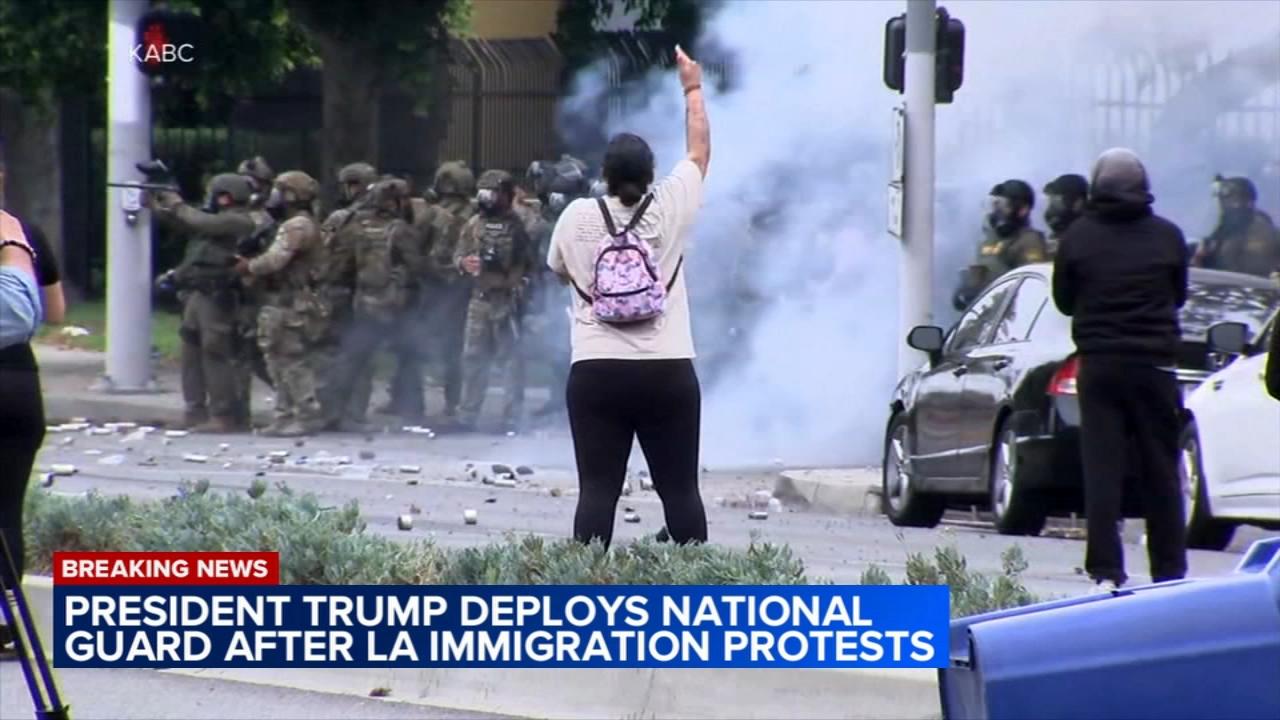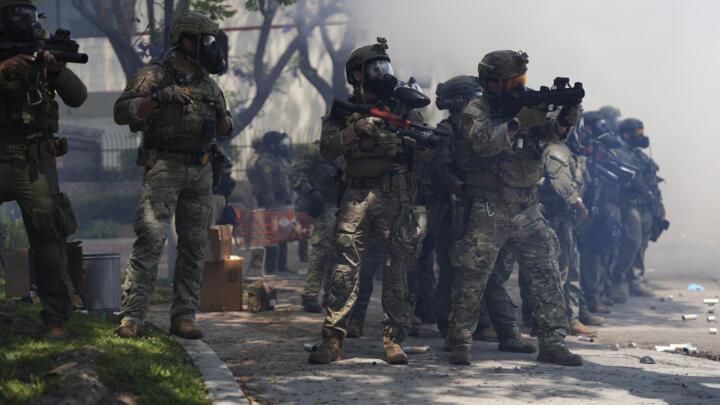On Saturday, June 7, 2025, President Donald Trump signed a presidential memorandum deploying 2,000 California National Guard troops to Los Angeles to address protests sparked by aggressive immigration raids. The move, which bypassed the authority of California Governor Gavin Newsom, has ignited fierce debate, with critics calling it an inflammatory escalation and supporters arguing it’s necessary to restore order. The deployment, authorized under Title 10 of the U.S. Code, places the Guard under federal control to protect federal personnel and property, including Immigration and Customs Enforcement (ICE) officers conducting operations in the region.

Protests erupted in Los Angeles, particularly in the predominantly Latino areas of Paramount and Compton, following ICE raids targeting day laborers and garment workers. Clashes between demonstrators and law enforcement intensified over the weekend, with reports of tear gas, flash-bangs, and arrests. A car was set ablaze in Compton, and at least 44 people were detained on Friday for alleged immigration violations. The White House claims the protests have turned violent, citing attacks on ICE agents, while local officials argue the demonstrations were largely peaceful.
Governor Newsom condemned the deployment as “purposefully inflammatory,” accusing the Trump administration of creating a spectacle to justify federal intervention. He has vowed to sue, calling the move unlawful and a violation of state sovereignty. Los Angeles Mayor Karen Bass echoed these concerns, clarifying that no Guard troops were in the city as of Sunday morning, despite Trump’s premature praise for their efforts. Legal experts, including UC Berkeley’s Erwin Chemerinsky, warn that federalizing the Guard without gubernatorial consent sets a chilling precedent for using military force to suppress dissent.
The administration’s actions have drawn polarized responses. Supporters, including Trump’s border czar Tom Homan, argue the Guard is needed to curb “lawlessness” and protect federal operations. Critics, like the ACLU, call it retaliation against California’s immigrant communities, likening it to a declaration of war on Angelenos. Defense Secretary Pete Hegseth has also threatened to mobilize 500 Marines from Camp Pendleton if violence persists, raising fears of further militarization. As protests continue, with more planned in Los Angeles, the standoff risks escalating tensions in a state already grappling with the fallout of Trump’s immigration crackdown. The deployment’s legality and impact remain under scrutiny, with potential lawsuits looming.






